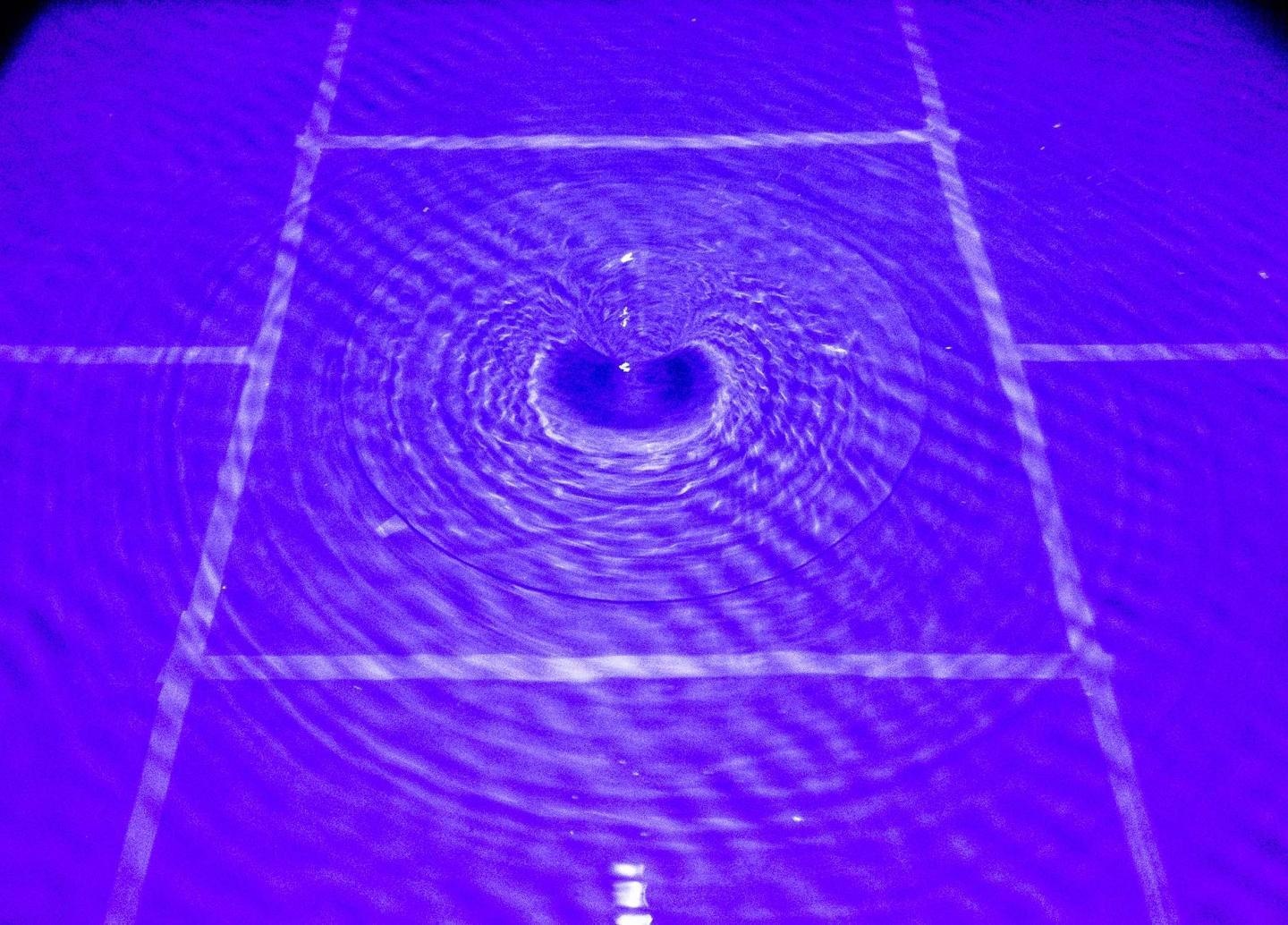Feb 2 2021
A new study that shows how a phenomenon named backreaction can be mimicked has offered a new understanding of the behavior of black holes.
 Lab experiment using water tank simulation to demonstrate backreaction. Image Credit: University of Nottingham.
Lab experiment using water tank simulation to demonstrate backreaction. Image Credit: University of Nottingham.
A team of researchers from the University of Nottingham has employed their simulation of a black hole, which involved a uniquely designed water tank, for the latest study published in Physical Review Letters.
This research is the first one to show that the evolution of black holes caused by the fields surrounding them can be mimicked in a laboratory experiment.
The team used a water tank simulator with a draining vortex, such as the one that forms when the plug in the bath is pulled. This simulates a black hole as a wave that reaches very close to the drain becomes dragged down the plug hole and cannot escape.
Systems such as these have become more and more popular in the last 10 years as a means to test gravitational phenomena under a controlled laboratory environment.
Specifically, Hawking radiation has been visualized in an analogous black hole experiment that involved quantum optics.
The researchers used this technique to demonstrate, for the first time, that when waves are transmitted into an analogous black hole, the characteristics of the black hole itself can vary considerably. The mechanism behind this effect in their specific experiment has a very simple explanation.
Waves reaching closer to the drain push more water down the plug hole effectively, which causes the total amount of water in the tank to decrease. This leads to a variation in the height of the water, which, in the simulation, corresponds to a variation in the characteristics of the black hole.
For a long time, it was unclear whether the backreaction would lead to any measurable changes in analogue systems where the fluid flow is driven, for example, using a water pump. We have demonstrated that analogue black holes, like their gravitational counterparts, are intrinsically backreacting systems.
Dr Sam Patrick, Study Lead Author and Post-Doctoral Researcher, School of Mathematical Sciences, University of Nottingham
“We showed that waves moving in a draining bathtub push water down the plug hole, modifying significantly the drain speed and consequently changing the effective gravitational pull of the analogue black hole,” added Dr Patrick.
What was really striking for us is that the backreaction is large enough that it causes the water height across the entire system to drop so much that you can see it by eye! This was really unexpected. Our study paves the way to experimentally probing interactions between waves and the spacetimes they move through. For example, this type of interaction will be crucial for investigating black hole evaporation in the laboratory.
Dr Sam Patrick, Study Lead Author and Post-Doctoral Researcher, School of Mathematical Sciences, University of Nottingham
Recently, studies on black hole at the University of Nottingham has been awarded financial support of £4.3 million to promote a three-year project, the goal of which is to offer further understanding about the physics of the early universe and black holes.
The researchers will employ quantum simulators to simulate the extreme conditions of the early universe and black holes. The Nottingham researchers will use a new state laboratory to configure an innovative hybrid superfluid optomechanical system to simulate quantum black hole processes in the lab.
Journal Reference:
Patrick, S., et al. (2021) Backreaction in an Analogue Black Hole Experiment. Physical Review Letters. doi.org/10.1103/PhysRevLett.126.041105.